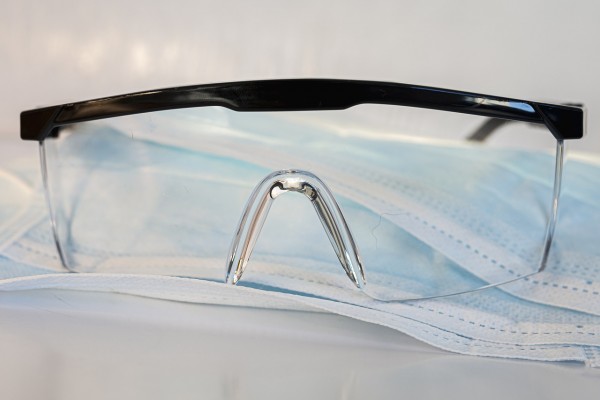Does Wearing Eyeglasses Reduce Susceptibility to Coronavirus?
Researchers noticed that only few people who were confined in a Wuhan, China hospital ward were nearsighted, this was based on 276 patients admitted on a period of 47 days. For that period, only 16, or less than 6 percent among them wore glasses.
According to a study published in the Journal of the American Medical Association Ophthalmology, wearing eyeglasses could offer additional barrier for protection against the transmission of COVID-19.
The authors of the study hypothesized that wearing glasses may reduce one's susceptibility to the virus since they are less likely to touch their faces or rub their eyes with contaminated hands, which can help block transmission of the virus through the tear ducts. Another reason is that glasses can act as another protective barrier protecting the eyes against droplets that are released into the air when you cough or sneeze.
MORE ABOUT: A Better Understanding On Living with Someone With Narcissistic Personality Disorder (NPD)
Is Wearing Glasses Really Necessary?
Dr. Lisa Maragakis, an infectious disease specialist and associate professor of medicine at Johns Hopkins School of Medicine, urged caution in interpreting the results of this study because of limitations surrounding it, such as the sample size which was fewer than 300 cases of COVID-19, and involvement of a single center.
Dr. Maragakis also noted that there are other factors that can confound the data, such as people who wear glasses tend to be older, and given their age risk, are more careful and more likely to stay home during a viral outbreak, as compared to those who do not wear glasses. Or it is possible that those who can afford to have glasses live in better, less crowded environments and are therefore less likely to contract the virus.
For Dr. Maragakis, this one study does offer some biological plausibility, given that health care providers also use eye protection such as face shields and goggles in health care facilities. What remains an issue is that in a public setting, should there really be a need to have additional eye protection when there is already the use of face masks and physical distancing?
Anthony Fauci, director of the National Institute of Allergy and Infectious Diseases since 1984, said that mucosa is present in the nose, mouth and eye, and theoretically all these mucosal surfaces must be protected. It may not be universally recommended to use goggles or an eye shield but for complete protection, it is better to use it if you have one available.

Eye Symptoms and COVID-19
The findings of this study also raised interesting questions about how often the eyes can be a portal of entry for coronavirus. Although it has long been established that viruses can enter the body through the mucous membranes in the eyes, nose and mouth, the nose has been the main entry point for this virus due to the high number of receptors present, creating a friendly environment where virus can replicate.
But doctors are receiving reports of eye symptoms in COVID-19 patients such as conjunctivitis or pink eye, which suggests that the virus may be entering the body through the eyes, and conjunctivitis could be an ocular manifestation of COVID-19 infection.
Check out more news and information on COVID-19 on MD News Daily.
Sep 17, 2020 10:02 PM EDT





